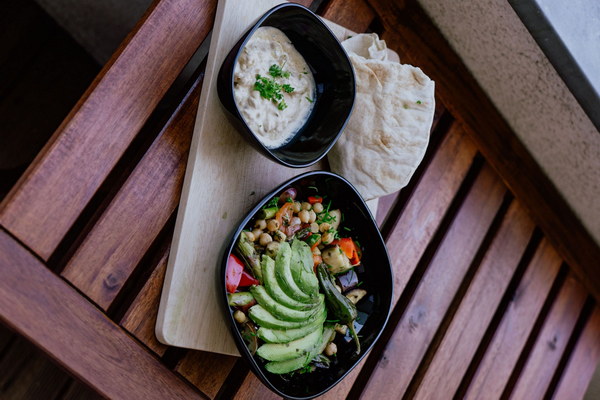Delivering Meals with Identity A Personal Account of HomeCare Service
In the bustling city of New York, where the fast pace of life often leaves people with little time for themselves, there lies a hidden world of home-care services that cater to those in need. One such service is the doorstep feeding program, where dedicated individuals deliver meals to those unable to cook or leave their homes. This article delves into the personal experiences of a volunteer who has taken on the role of a doorstep feeder, highlighting the importance of identity and the profound impact of such a service on the lives of those it serves.
My journey as a doorstep feeder began when I learned about the growing need for such services in my community. As a person with a strong sense of empathy and a desire to make a difference, I knew I had to get involved. I was excited to take on this role, but I also knew that it would come with its own set of challenges. One of the most significant challenges was understanding the identity of the people I would be serving.
The identity of a doorstep feeder is multifaceted. First and foremost, we are humanitarians, providing essential support to those who are most vulnerable. Our identity is also that of a friend, as we often engage in conversations and build relationships with our clients. Lastly, we are ambassadors for our organization, representing the values and mission of the home-care service we work for.
On my first day, I was paired with a client named Mrs. Thompson. Mrs. Thompson was an elderly woman who had recently been diagnosed with a chronic illness that made it difficult for her to leave her home. I quickly learned that she had a rich history in our community, having lived there for over 60 years. Her identity was that of a wise and beloved figure, known to everyone who had ever met her.
As I walked up to her door, I felt a mix of excitement and nervousness. I was eager to meet her and deliver the meal, but I also worried about how she would react to a stranger entering her home. To my relief, Mrs. Thompson welcomed me with open arms and a warm smile. She was grateful for the meal and shared stories of her life with me, which helped to put me at ease.
Throughout my time as a doorstep feeder, I have encountered a wide range of identities. Some clients are young children with disabilities, others are elderly individuals with limited mobility, and still others are single parents who simply need a break from their busy schedules. Each client has their own unique story and identity, and it is my job to understand and respect these differences.

One of the most challenging aspects of my role is navigating the complexities of identity when dealing with clients who have mental health issues or are dealing with addiction. It is important to approach these situations with sensitivity and compassion, recognizing that the identity of these individuals is not solely defined by their struggles.
In addition to providing meals, I have also become an advocate for my clients, helping them navigate the complexities of their healthcare systems and advocating for their needs. This has required me to be adaptable and resourceful, as each client presents their own set of challenges.
One such client was Mr. Johnson, a man in his 40s who had been dealing with addiction for years. His identity was one of hope and resilience, as he had recently entered a rehabilitation program and was eager to rebuild his life. As his doorstep feeder, I helped him connect with support services and provided him with meals that were both nutritious and comforting.
In the process, I learned that my own identity was also evolving. I had become more empathetic and compassionate, and I had developed a deeper understanding of the struggles that many people face. I had also become a more confident advocate for my clients, knowing that their voices needed to be heard and their needs met.
In conclusion, the identity of a doorstep feeder is one that is both complex and rewarding. It requires a strong sense of empathy, compassion, and advocacy. By providing meals to those in need, we are not only nourishing their bodies but also their spirits, helping them to maintain their dignity and independence. As I continue my journey as a doorstep feeder, I am reminded that the identity of a person is not fixed, and that by supporting and understanding the unique stories of each individual, we can help to shape a more compassionate and inclusive world.









